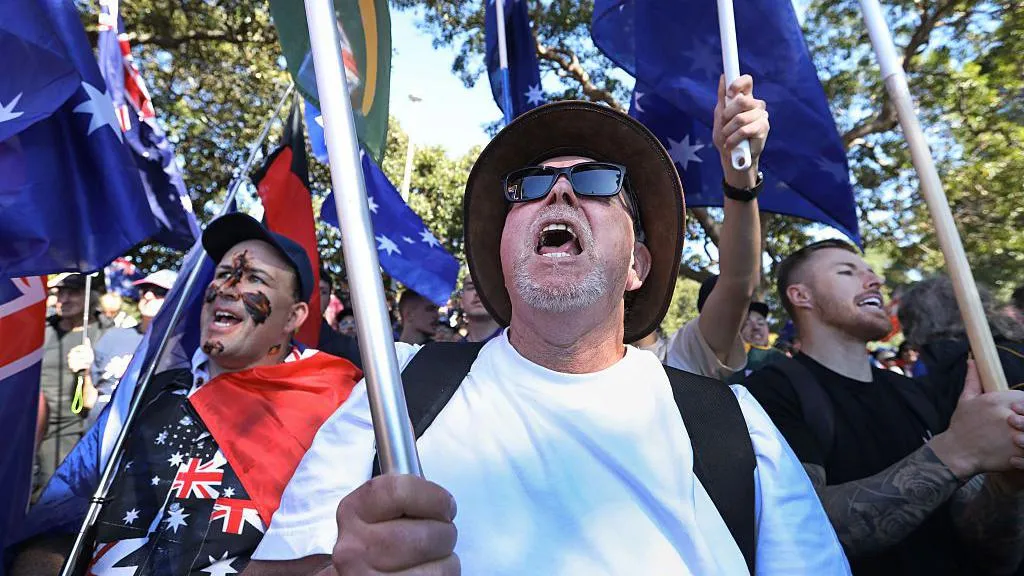Thousands of Australians turned out over the weekend for anti-immigration rallies in major cities, prompting widespread concern over the rise of far-right extremism in the country. The events, organized under the banner of “March for Australia,” took place in Sydney, Melbourne, Adelaide, and other urban centers, drawing both supporters and counter-demonstrators.
In Sydney, police estimated up to 8,000 participants, with hundreds of officers deployed to maintain order. Authorities reported no significant incidents despite heightened tensions. In Melbourne, however, clashes broke out between anti-immigration protesters and attendees of a pro-Palestine rally. Notably, neo-Nazi figure Thomas Sewell addressed the Melbourne crowd from the steps of Parliament House, highlighting concerns over extremist involvement.
Adelaide saw one of the largest gatherings, with approximately 15,000 people attending both the rally and a counter-demonstration. Police described the crowds as “generally well-behaved,” though the presence of provocative placards supporting controversial figures such as Dezi Freeman, accused of killing two police officers, drew attention. A large-scale manhunt for Freeman, 56, is currently underway.
The rallies were promoted by a mix of opposition politicians, far-right figures, and some anti-lockdown activists who rose to prominence during the COVID-19 pandemic. Among the political figures attending were One Nation senator Pauline Hanson and federal MP Bob Katter. The organizers’ platform cited concerns over mass migration, cultural erosion, wages, housing, infrastructure, crime, and environmental issues, framing the events as a defense of Australian unity.
The government strongly condemned the rallies. Home Affairs Minister Tony Burke stated: “There is no place in our country for people who seek to divide and undermine our social cohesion. We stand with modern Australia against these rallies – nothing could be less Australian.” Similarly, Minister for Multicultural Affairs Dr Anne Aly emphasized that Australia will not tolerate hate or intimidation targeting migrant communities, describing the events as “grounded in racism and ethnocentrism” with no place in contemporary society.
The marches come amid growing scrutiny of right-wing extremism in Australia, which has seen increased government action, including making Nazi salutes punishable by mandatory prison terms. As public debates over immigration and national identity intensify, authorities continue to monitor these movements closely to prevent further clashes and ensure public safety.

